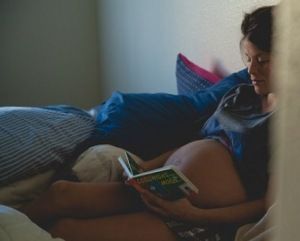News
Night work increases risk of miscarriage, study reveals
This article is more than 6 years old.
When a woman loses a baby, lifestyle factors such as work patterns can come into play

Perhaps she’d better think twice about taking on night shifts (photo: Josh Willink/Pexels)
A new Danish study carried out by researchers at the occupational and environmental medicines clinics at Bispebjerg and Frederiksberg hospitals reveals that working two or more night shifts per week increases the risk of a miscarriage by 30 percent.
“It seems as if night work has an acute effect on pregnancy – not only on pregnant women who work only at night, but also on those who alternate between day and night work,” Paula Hammer, one of the researchers behind the study, told videnskab.dk.
Data from 22,477 pregnant women – mainly doctors and nurses – was used, and the trajectory of their pregnancy was compared with the number of night shifts they worked. The results have just been published in Occupational & Environmental Medicine.
“The main conclusion is that women working two or more nights per week during the first 22 weeks of pregnancy have a higher risk of miscarrying,” said Hammer.
One okay, two too much
Previous studies have indicated a connection between miscarriages and night work, but without coming to any conclusions regarding how much night work is too much.
“Our study points to the fact that up to one night shift per week does not increase the risks,” said Hammer.
The melatonin factor
Hammer and her colleagues think a hormone called melatonin can play a role because it regulates circadian rhythms. At night when it is dark, we produce more melatonin than in daylight, Hammer explained.
“The development of the placenta seems to be regulated by melatonin, so we think the increased risk for miscarrying can be due to the change in melatonin secretion,” he said.
“However, there is still a great deal we don’t know about melatonin, circadian rhythms and pregnancy. It’s a very complex process and there are a lot of different hormones involved.”










































